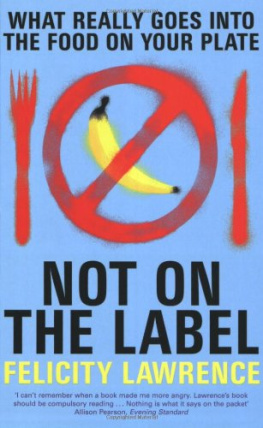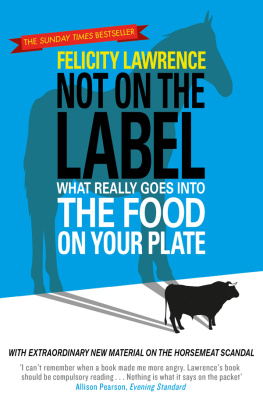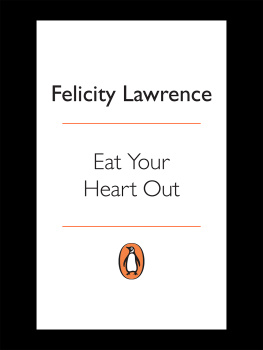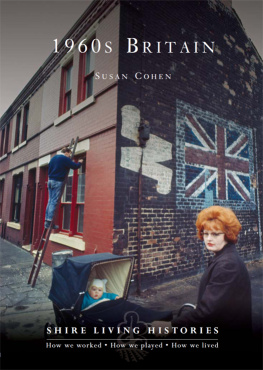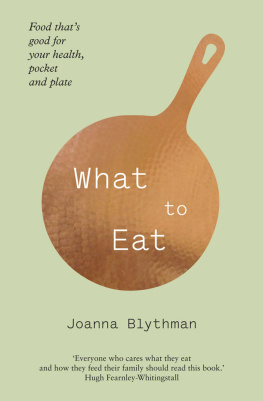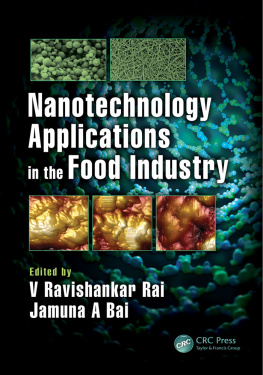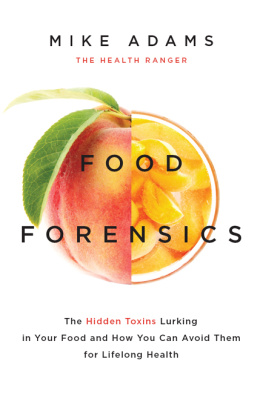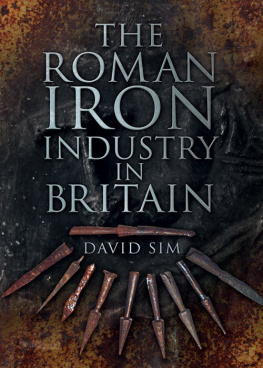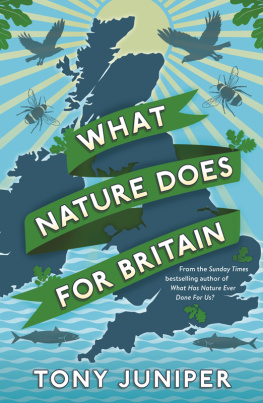Felicity Lawrences horrifying account of how the food we eat is produced doesnt make for a good nights sleep but is compulsively readable. It is the sort of book that changes attitudes Peter Parker, Evening Standard
From chickens in Devon to salad in Spain and beans in Kenya, Felicity Lawrence blends sleuthing and science with appetite-killing flair. Her expos of the costs of our year-round food cornucopia leaves no packet unscanned, and very few undamned Independent
A blistering expos of the global food industry, focusing on the role supermarkets play in deciding what we eat and how it gets to us. This is a great book that anyone who eats should read. It is also a fantastic diet aid you may never eat again! Bookmunch
ABOUT THE AUTHOR
Felicity Lawrence is an award-winning journalist and editor who has been writing on food-related issues for over twenty years. She is consumer affairs correspondent for the Guardian and lives in London.
Not on the Label
What Really Goes into the
Food on Your Plate
FELICITY LAWRENCE

PENGUIN BOOKS
For Matt, Anna, Cecy and Ellie
PENGUIN BOOKS
Published by the Penguin Group
Penguin Books Ltd, 80 Strand, London WC2R 0RL, England
Penguin Group (USA) Inc., 375 Hudson Street, New York, New York 10014, USA
Penguin Books Australia Ltd, 250 Camberwell Road,
Camberwell, Victoria 3124, Australia
Penguin Books Canada Ltd, 10 Alcorn Avenue, Toronto, Ontario, Canada M4V 3B2
Penguin Books India (P) Ltd, 11 Community Centre,
Panchsheel Park, New Delhi 110 017, India
Penguin Group (NZ), Cnr Airborne and Rosedale Roads, Albany,
Auckland 1310, New Zealand
Penguin Books (South Africa) (Pty) Ltd, 24 Sturdee Avenue,
Rosebank 2196, South Africa
Penguin Books Ltd, Registered Offices: 80 Strand, London WC2R 0RL, England
www.penguin.com
Published in Penguin Books 2004
1
Copyright Felicity Lawrence, 2004
All rights reserved
The moral right of the author has been asserted
Except in the United States of America, this book is sold subject to the condition that it shall not, by way of trade or otherwise, be lent, re-sold, hired out, or otherwise circulated without the publishers prior consent in any form of binding or cover other than that in which it is published and without a similar condition including this condition being imposed on the subsequent purchaser
ISBN: 9780141907161
Contents
Acknowledgements
Much of my recent research into the food and farming industry has been carried out in my role as consumer affairs correspondent for the Guardian, and I am grateful to many colleagues at the newspaper who have encouraged me or shared their knowledge. In particular I should like to thank my editors Alan Rusbridger, Georgina Henry, Ian Katz, Harriet Sherwood and David Leigh, and my fellow correspondents John Vidal, Matthew Fort, Paul Brown and James Meikle. Stuart Millar and Leslie Plommer worked with me on The Way We Eat Now series, in which some of my pieces were first published.
My interest in the politics of food was sparked over twenty years ago by Caroline Walker and her husband Geoffrey Cannon, who first taught me how to investigate. Professors Tim Lang and Aubrey Sheiham have explained the system to me over many years. Tim Lang read large parts of the manuscript. Tim Lobstein and Kath Dalmeny at the Food Commission have been a constant source of information and inspiration. I am also grateful to Ed Mayo and the New Economics Foundation.
Don Pollard has worked for over ten years to bring to public notice the terrible conditions suffered by migrant workers in the food industry. Nuno Guerreiro has tirelessly supported Portuguese workers in the UK. Both gave generously of their time.
Patrick Holden and Craig Sams of the Soil Association helped me understand the power structures of the current farming system. Caroline Lucas, MEP, has shared her detailed knowledge on trade and the environment.
Alex von Tunzelmann provided research on soya and corn; Bibi van der Zee helped with Spanish translations.
For expert editing I am most grateful to Kate Barker, who transformed the manuscript. At Penguin I am also grateful to Juliet Annan, Helen Campbell, Keith Taylor and Helena Peacock. Bill Hamilton, my agent, provided endless encouragement and was an invaluable sounding-board. Kate Parkin gave lots of moral support.
My husband, Matthew Bullard, opened my eyes to the developing world, and managed to keep cooking throughout the books gestation.
I should also say a word of thanks to all those press officers at the major supermarkets and the Food Standards Agency who have answered my questions with such forbearance.
Finally, I should like to thank all those who gave me information who cannot be identified, but without whom much of this book could not have been written.
Introduction
In 1991 I came back to London after two years living in the Pakistani border town of Peshawar, working with refugees from Afghanistans endless wars. My return to Western civilization came via the supermarket, since in order to celebrate my homecoming friends were preparing a special dinner. Shopping for it, as for most meals in industrialized countries these days, began and ended with a drive to the nearest big retailer.
I remember that shopping trip clearly because it was both exciting and, in some way I couldnt put my finger on at the time, vaguely troubling. I had been isolated from British culture for two years and I was experiencing the peculiar sense of dislocation that comes with seeing everything that was once so familiar as if for the first time. I was briefly glimpsing our food system from the outside.
Food from home is one of the things you most look forward to when youre abroad. I was almost drooling with anticipated pleasure as we drove past the boarded-up shops and cheap fast-food outlets in our high street. I had dreamed of sizzling bacon, soft smelly cheeses, fine wine and English chocolate. I chatted with my friend about the astonishing number of good foods you could find in supermarkets now, everything imaginable available in a one-stop motorized shop. As we queued for what seemed an age to get into the car park, we talked about how convenient it all was compared with life in a war-zone. Then, as our turn to go through the barrier came, my friend accelerated into a parking space, narrowly beating another car approaching it from the opposite direction. In Pakistan parking to shop had merely entailed swinging a pick-up truck in at right angles to a market stall, so I was momentarily startled by this uncharacteristic display of traffic-induced aggression. But there was no time to think about it.
We charged through the sliding doors, grabbing a wonky trolley on the way, and got going in the fresh fruit and vegetable section. It was full of produce from all round the world, things I had not only not seen while I was away, but couldnt remember being there before I left either: wonderful fresh herbs, different varieties of potatoes, summer asparagus alongside winter roots, the quintessentially English next to the temptingly tropical. Dont suppose you got much of this while you were out there, my friend said. It was true that in the refugee camps there had been hunger, and malnutrition remains a semi-permanent spectre in some parts of Afghanistan. But in the relative safety of the border areas the problem was not lack of food but lack of money for it and lack of clean water. In fact we had been surrounded by plenty.

